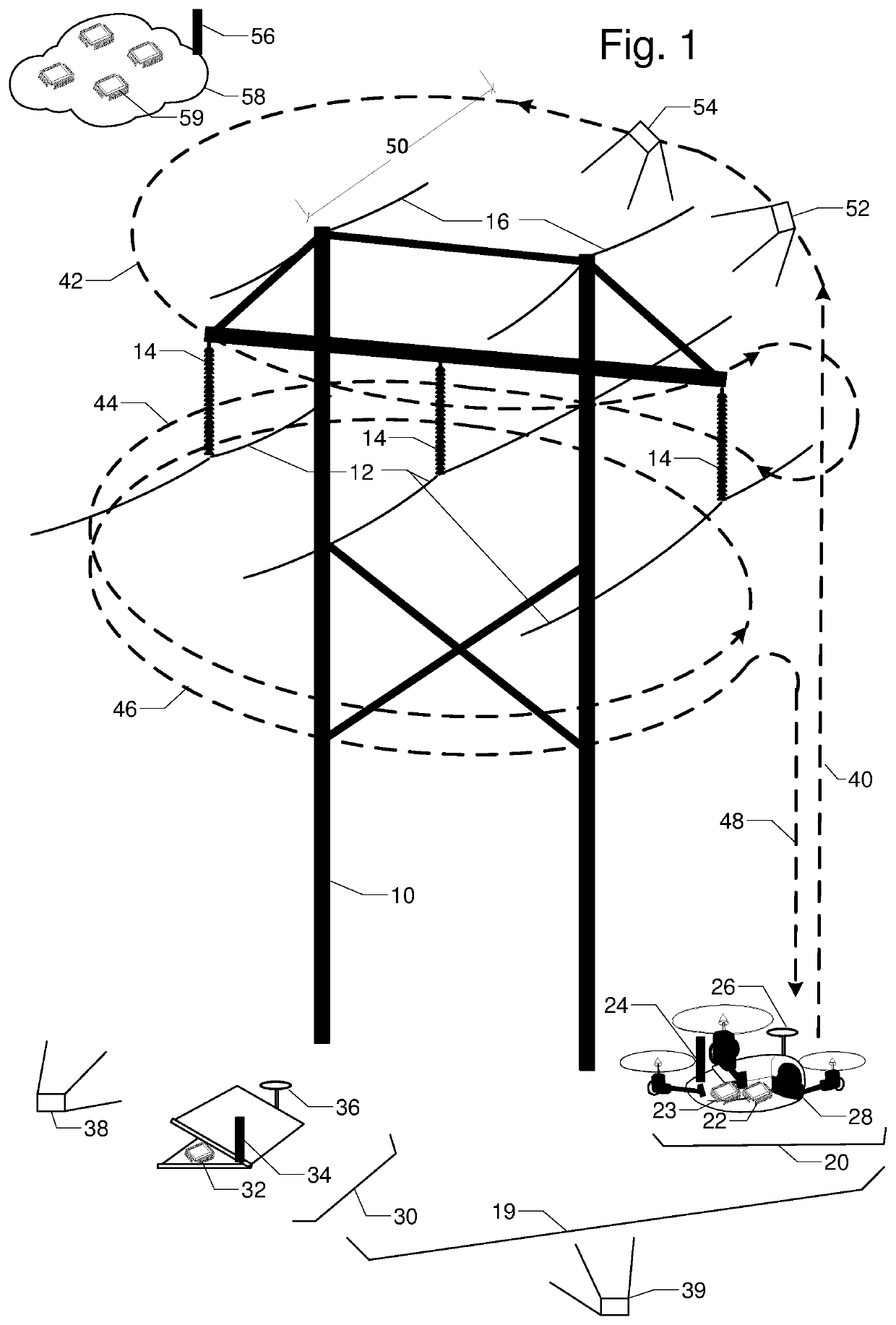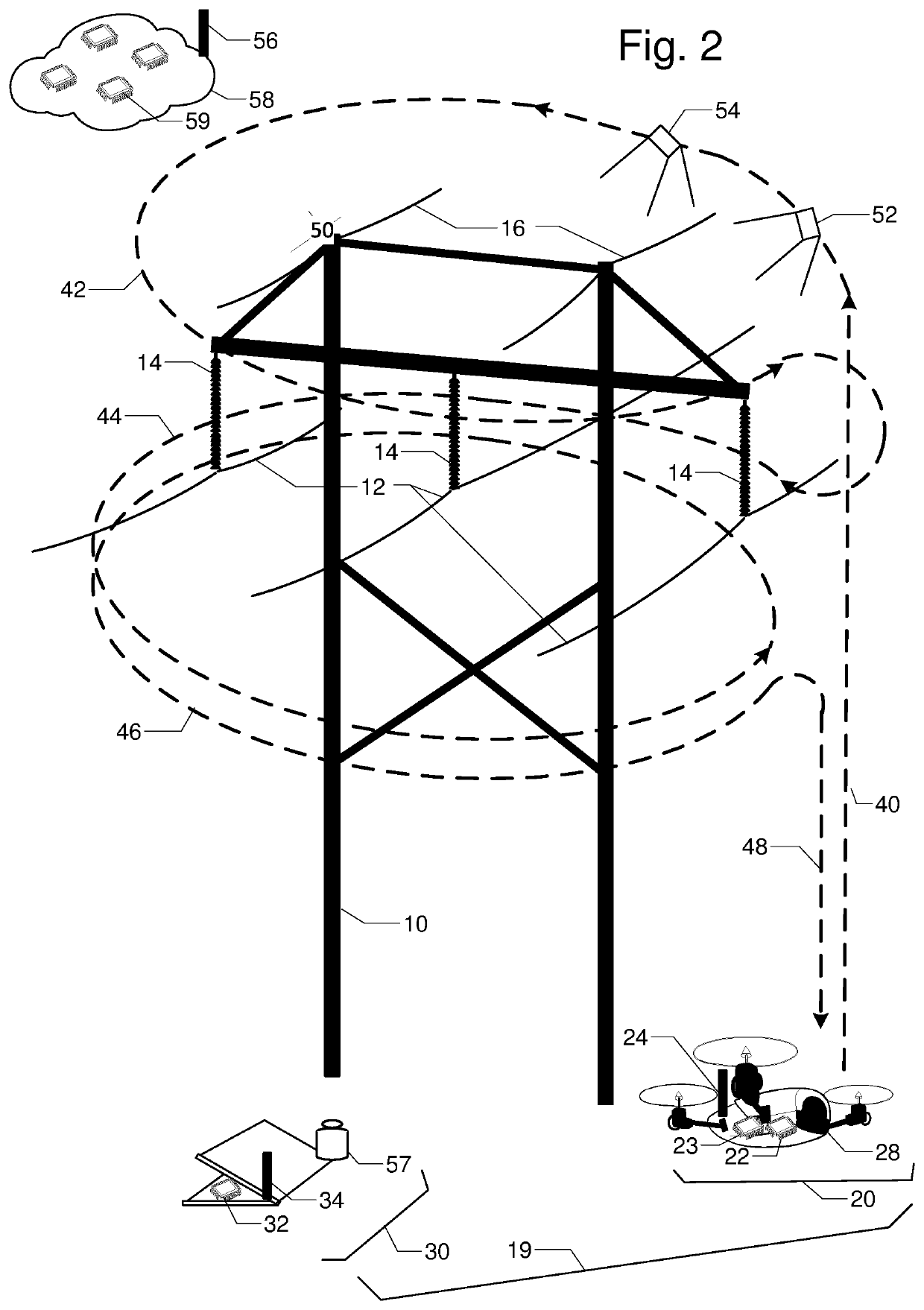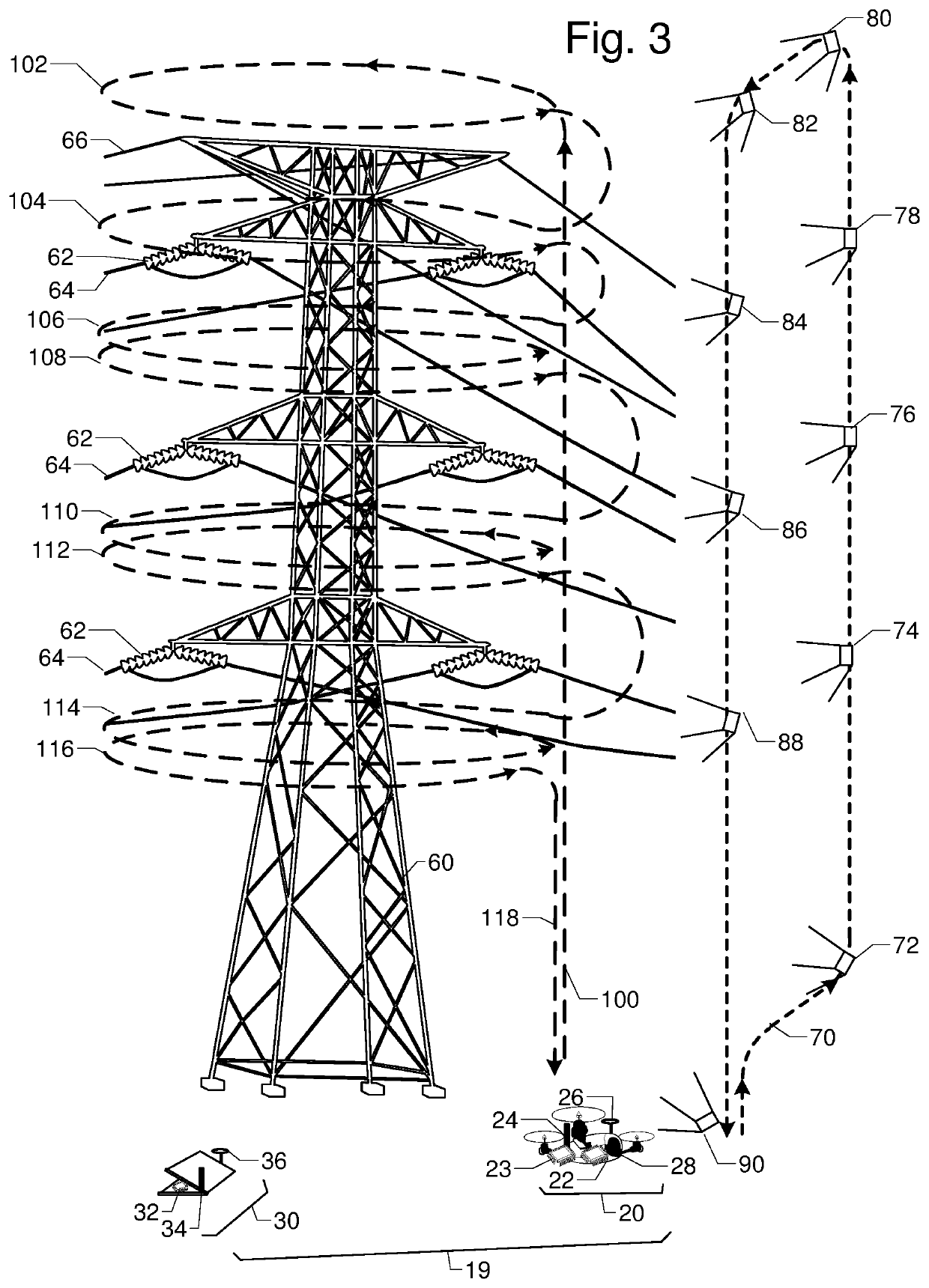Flight planning for unmanned aerial tower inspection
a technology for aerial towers and flight planning, applied in scene recognition, instruments, reradiation, etc., can solve the problems of low signal to noise ratio, difficult to get into rough terrain, and expensive mobilization of bucket trucks
- Summary
- Abstract
- Description
- Claims
- Application Information
AI Technical Summary
Benefits of technology
Problems solved by technology
Method used
Image
Examples
Embodiment Construction
[0036]This section describes several embodiments of the tower inspection system with reference to FIGS. 1-5.
[0037]FIG. 1 is a perspective view of a transmission line H-tower 10 commonly used in single circuit transmission lines. Tower 10 supports insulators 14, which in turn support phase conductors 12. Tower 10 also supports shield wires 16 that reduce the impact of lightning strikes. The tower inspection system 19 is an unmanned aerial system (UAS), which includes a base station 30 and an unmanned aerial vehicle 20. Base station 30 has processer and memory 32, radio 34, and location base 36. UAV 20 has embedded processor and memory 22, inertial measurement unit (IMU) 23, radio 24, location rover 26, and camera 28. Orientation images 38 and 39 are taken from several vantage points. The inspection resolution and safety requirements determine standoff distance 50. Flight path with segments for ascent 40; loops 42, 44, and 46; and descent 48 maintains standoff distance 50 while provid...
PUM
 Login to View More
Login to View More Abstract
Description
Claims
Application Information
 Login to View More
Login to View More - R&D
- Intellectual Property
- Life Sciences
- Materials
- Tech Scout
- Unparalleled Data Quality
- Higher Quality Content
- 60% Fewer Hallucinations
Browse by: Latest US Patents, China's latest patents, Technical Efficacy Thesaurus, Application Domain, Technology Topic, Popular Technical Reports.
© 2025 PatSnap. All rights reserved.Legal|Privacy policy|Modern Slavery Act Transparency Statement|Sitemap|About US| Contact US: help@patsnap.com



